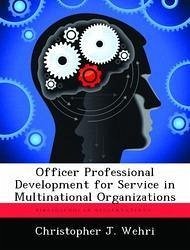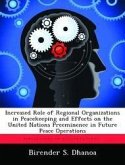The United States is a founding member of the North Atlantic Treaty Organization (NATO) and has considered the Alliance an integral component of U.S. defense strategy for over sixty years. At the height of the Cold War, a third of the entire U.S. Army postured in Germany in support of NATO and the defense of Europe. Additionally, before the wars in Iraq and Afghanistan, U.S. Army officers routinely spent large portions of their careers in Europe training and serving with Alliance partners. The U.S. Army's officer professional development model reinforced this culture by focusing officer education on coalition and alliance operations, as well as providing officers with numerous overseas assignments. This methodology suffered when Europe's existential threat disappeared and U.S. focus shifted to the defeat of terrorism, but is making a significant resurgence because of ongoing overseas contingency operations. Senior leaders have realized that in a resource constrained environment, unilateral operations are less likely, and that military officers must possess the skills necessary to work and serve in complex multinational organizations. This monograph asserts that an officer professional development model that emphasizes postgraduate education and broadening assignments best prepares officers for service in multinational organizations. Beginning with a comprehensive literature review, this monograph examines existing work to show that it primarily focuses on officer development for service in the U.S. joint arena or for service as strategic leaders and not so much for service in multinational organizations. A brief synopsis of the history of officer professional development, beginning with the developments that occurred following the Spanish American War and concluding with the official Army boards that followed World War II, establishes the ever-changing environment that is U.S. officer development. This is an important section because it establishes a baseline under
Hinweis: Dieser Artikel kann nur an eine deutsche Lieferadresse ausgeliefert werden.
Hinweis: Dieser Artikel kann nur an eine deutsche Lieferadresse ausgeliefert werden.








